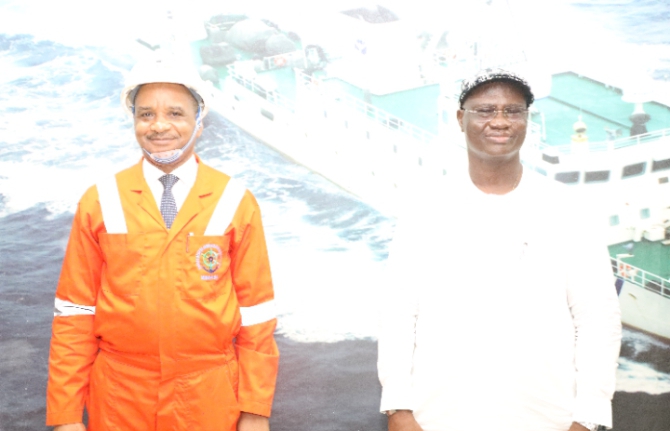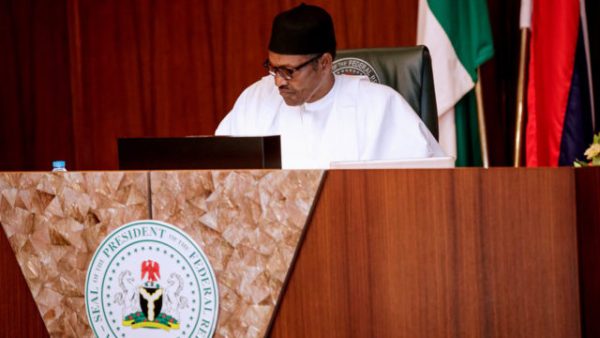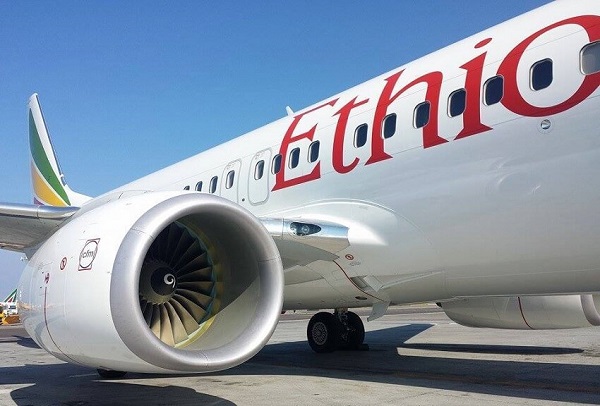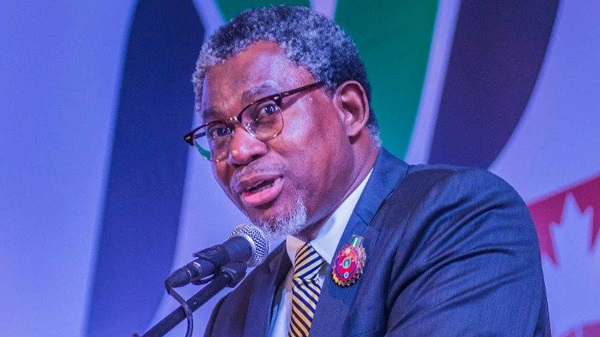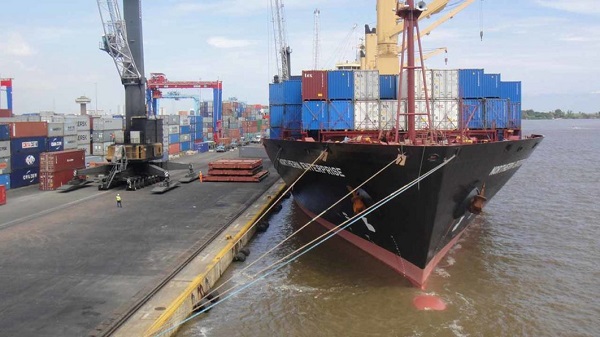Maritime Insecurity: Nigerian Judges Aided Piracy – UN Expert
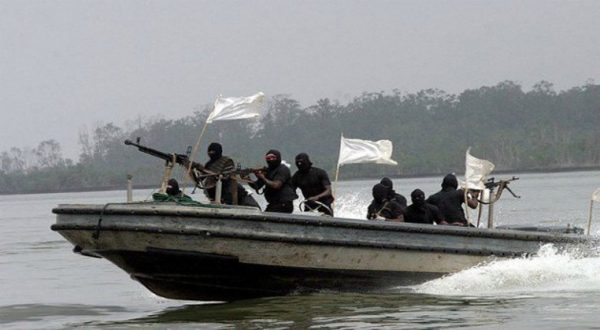
· New piracy Act faulted
· Wharf Landing Fees: MWUN dumps MoU as legal battle persists
By Kenneth Jukpor
The claim that the Nigerian judiciary lacked sufficient legal instrument prior to the passage of the Suppression of Piracy and Other Maritime Offences (SPOMO) Act has been flawed by a United Nation’s Maritime Law expert as Nigerian judges have been lampooned for aiding piracy.
The perception had been that the nation’s jurists lacked the legal instrument to effectively combat maritime crimes and piracy, but global experts posit that judges had unfettered access to treat all maritime crimes with grave penalties under the Criminal Code Act of Nigeria.
The international shipping community has been showing concern that Nigeria hasn’t been able to successfully convict people on piracy, with this perceived as a signal that the nation wasn’t committed to tackling the menace.
Since there was no domestic law which defined piracy in Nigeria, the offenders saw this as an incentive to continue their criminal activities while the Nigerian jurists lamented inadequate legal framework to prosecute perpetuators of armed robbery at sea and piracy.
However, the Executive Director of the Centre for Maritime Law and Security Africa, Dr. Kamal-Deen Ali debunked claims of legal inadequacies at the 9th edition of the Admiralty Law Seminar for Judges with the theme: “Suppression of Piracy and Other Maritime Offences (SPOMO) Act 2019: Keys to Accelerating and Achieving Safe and Secure Shipping”
Dr. Kamal-Deen, a former Director of Legal Affairs of the Ghana Navy said: “Until the SPOMO Act, there was no reason to say that if there was any criminal activity involving matters of the ship or the seas, that there wasn’t any way your lordships exercise legislation. It seems to me that your lordships jurisdiction was completely unfettered to the extent that the office of the Attorney General of the Federal (AGF) of Nigeria would bring a crime to your lordship.”
“Anything related to violence onboard a ship should have been treated as a criminal matter within the Criminal Offences Act or the Criminal Code of Nigeria. If it resulted in murder, it is simply murder. If it resulted to the use of fire arms, it is a crime that has to be dealt with within the fire arms Act or whatever relevant Act in Nigeria”
According to the technical expert to UN High Panel on Sustainable Development Goals (SDGs), if there was restrain on the part of the judges or from the AGF, the implication would be that armed robbery incidents shouldn’t be taken care of because there wasn’t a specific legislation for armed robbery.
“What I am saying is that every act or activity in robbery at sea or other crimes could find a place to be addressed within the criminal jurisdiction of the Republic of Nigeria as long as the matter was brought before your lordships,” he told the participating judges.
MMS Plus checks also revealed that the drop in the piracy activities in Somalia reduced significantly after the intervention by the international maritime community via improved security activities in 2011 prior to the signing of the Law for Combating Piracy in March 2012.
At the heat of piracy in the Gulf of Aden and off the Somalian coast, the Republic of Somaliland pursued a vigorous and successful strategy of denying prospective or actual pirates any safe havens on its territory and detained and prosecuted persons who are suspected of planning or executing acts of piracy before 2012.
The small and poorly equipped Somaliland Coastal Force at the time also enjoyed increased external help and improved its capacity to monitor Somaliland’s 530 mile coast.
While the arrival of the SPOMO Act is a major milestone in the bid to combat piracy on Nigerian waters, judges could have exercised criminal jurisdiction based on the territorial waters Act synchronized in the international law contained in the 1982 United Nations Convention on the Law of the Seas (UNCLOS). This leeway could have been optimized to address issues such as damage to a lighthouse, submarine cable, pipeline or any intentional damage within the Nigerian territorial seas.
Meanwhile, legal experts have identified some loopholes in the SPOMO Act as it failed to specify what constitutes territorial waters even as some areas of the requirements for prosecution and also sanctioning strategies were unspecified.
Dr. Adewale Olawoyin, SAN, observed that the SPOMO Act didn’t define what international waters meant.
“It would have been helpful if the SPOMO Act had stipulated what constitutes international waters. It would have defined the scope of the Act. So that when an offence is said to be committed in the territorial waters by definition of Nigeria’s territorial waters Act, we know what action should be taken.”
“The Act also defines a maritime offence to include armed robbery at sea and other acts different from piracy. Piracy is said to be a maritime offence on international waters but international maritime lawyers also state that international waters also include Exclusive Economic Zones (EEZ) of every nation. Our territorial waters Act says 12 nautical miles, but the EEC maritime transport policy says it is 200 nautical miles. So, where does one end and where does the other start? This isn’t specified in the SPOMO Act” Dr. Adewale said.
He posited that judges may find themselves in a quagmire at some point when they had to make a decision based on this jurisdictional issue of territorial or international waters.
While Dr. Adewale referred to the SPOMO Act as a significant one for the West African sub-region, he added that; “Some maritime scholars state that the Exclusive Economic Zones (EEZ) are part of international waters, others posit that it is categorized as territorial waters”
The Director General of NIMASA, Dr. Dakuku Peterside agreed that it would have been important that the Act defined international waters, but he asserted that it wasn’t a big issue.
“Nigeria’s EEZ stretches to 200 nautical miles and within our EEZ is territorial water. When an offence is committed on our territorial waters there is no ambiguity or dispute about. If an offence is committed within 12 nautical miles, that isn’t piracy but simply a maritime offence. Beyond 12 nautical miles is within the EEZ,” Dakuku said.
He reiterated that SPOMO Act is a combination of relevant aspects of UNCLOS and SUA Convention, noting that within these instruments the issue of international waters stretches from Nigerian high-seas to the areas beyond our EEZ.
“So, if an event occurs outside our EEZ, it can be addressed under the SPOMO Act. The issue is that globally the international community has been showing concern that Nigeria hasn’t been able to successfully convict people on piracy and it sent a signal that the nation wasn’t committed to tackling the menace” the NIMASA boss added.
In another development, the Managing Director of Nigerian Ports Authority (NPA) Ms. Hadiza Bala-Usman has stated that the federal government was still in court with the Lagos State government on the collection of wharf landing fees.
Recall that the Lagos State government and the Maritime Workers Union of Nigeria (MWUN) recently signed a Memorandum of Understanding (MoU) on collection of the fees.
Speaking with MMS Plus newspaper during an exclusive interview, the NPA boss, Usman said, “We are still in court with Lagos State. We are still challenging the collection. They have gone into ports with the MWUN as their consultant to collect the Wharf Landing fees. We have told them that it isn’t acceptable. We also stressed that they wouldn’t have any position in the ports and they shouldn’t collect any Wharf Landing fee.”
“Our jurisdiction is within the port environs and it would be difficult for us to enforce this outside the ports. However, in the port environs we wouldn’t accept the collection of any Wharf Landing fee by Lagos State government or any other State government that has institutes such fees.”
However, the President General of MWUN, Comrade Adewale Adeyanju has stated that the union would shelf all activities on the collection of the fee as a result of the ongoing legal battle.
“When Maritime Workers went into agreement with the Lagos State Government I had no idea that they were in conflict with the federal government over that, let alone the information that the matter is before the court. If I knew that the collection of the fee was linked to any controversy, we wouldn’t have assented to it”, Adeyanju told our correspondent.
He noted that the MOU between the Lagos and MWUN was published on the media because the union didn’t perceive that there was anything to hide.
“We didn’t know they were in court with the federal government. Besides, the Managing Director of NPA is like our mother at the ports. We have enormous respect for her. If the matter is in court as we just learnt, we wouldn’t do anything funny. In fact, we would stop all processes until we conclude investigations” he said.
He likened the conflict between both levels of government to a situation where two elephants fight.
“You know that when two elephants fight it is the grass that suffers. We would avoid being victims of this fight and we would follow due process. We don’t want anything would bring crisis at the ports and we wouldn’t be responsible for the crisis”, he added.




